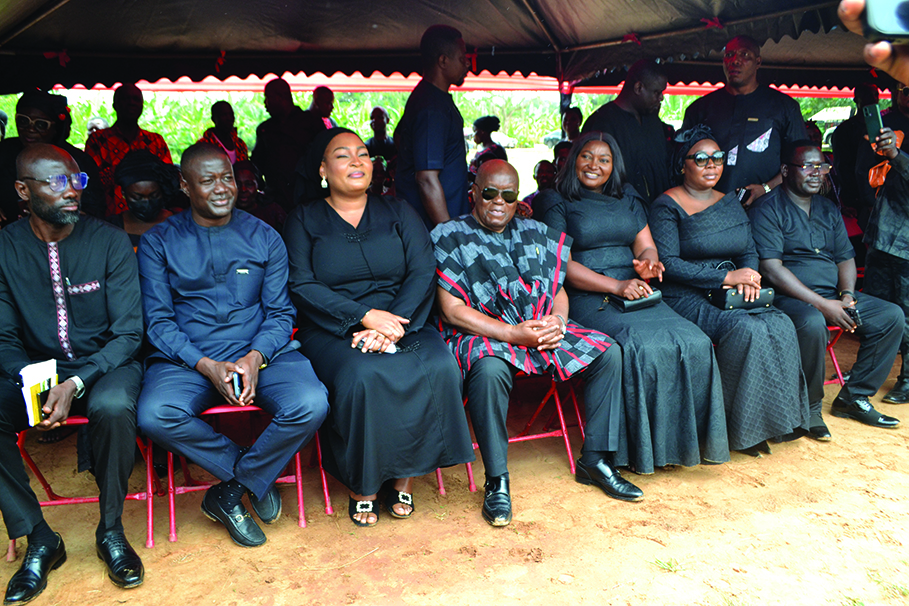
Every stay at a luxury hotel is meant to be an exercise in indulgence and reassurance. Guests arrive expecting pristine surroundings, impeccable service, and above all,
confidence that every aspect of their experience has been carefully curated. Yet all it takes is the sight of a single cockroach skittering across a breakfast buffet to shatter that illusion.
In an instant, years of careful reputational capital evaporate, online review scores plummet, and prospective guests begin to question every facet of the operation. For Ghana’s hospitality leaders, where global travelers and discerning locals alike demand consistency, a solitary insect crossing can dismantle a five?star promise overnight.
Hospitality venues like hotels, restaurants, lounges, recreational centers naturally present an irresistible invitation to pests. The constant dance of chefs in bustling kitchens, the steady stream of diners, and the concealed damp corners behind stoves and dishwashers create a perfect storm for cockroaches, rodents, and other unwanted guests.
Unlike a manufacturing plant or a warehouse where infestations may go unnoticed in back offices or storage bays, hotels and restaurants expose every inch of their premises to public view. A pest sighting in a guest room or dining hall becomes an immediate headline, shared across social media feeds and travel?review platforms before management even has a chance to react.
In Ghana’s competitive hospitality industry, even top-tier hotels are not immune to the crippling impact of poor pest control. One day, one well-known Accra establishment that was once praised for its refined décor and exceptional service can faced a sharp downfall after neglecting early signs of a pest issue. What began as a few ignored sanitation complaints can quickly escalate into a full-blown crisis when images of cockroaches in the kitchen surface online.
The result is swift and unforgiving: a drastic drop in guest confidence, a sharp decline in room occupancy, mass cancellations of group bookings, and millions of cedis lost in revenue. Despite launching an emergency deep-clean and issuing public apologies, the damage would have already happen. Proving that no amount of luxury can compensate for the reputational fallout from a single pest incident.
Recovering from such a crisis demands more than ad hoc fumigation; it requires a hospitality?grade pest?management blueprint that anticipates intrusion rather than reacting after the fact. True resilience begins with a commitment to perimeter defense on every accessible front.
Doors, windows, and service entrances must be sealed and inspected routinely, ensuring that the outer envelope of the property remains impervious to rodent and insect ingress. Back?of?house areas, where waste accumulates and moisture lingers, deserve equally rigorous attention: waste must be removed on a tight schedule, grease traps cleaned with high?pressure steam, and all potential water sources thoroughly dried.
Housekeeping teams need to be trained to spot the earliest signs of infestation, droppings along baseboards, and subtle grease trails under sinks. Nightly walkthroughs of common areas, from lobbies to corridors, signal to guests that cleanliness is a visible priority.
Rapid?response teams must stand ready to investigate any report, while transparent communication strategies frame pest?management efforts as part of the hotel’s commitment to safety. When visitors encounter signage or digital updates sharing sanitation audit results, they feel informed rather than alarmed, reinforcing trust in the brand.
Proactive transparency extends beyond the hotel walls. Savvy operators now publish quarterly pest?control reports as part of corporate partnership materials, showcasing audit scores, treatment schedules, and corrective actions. When event planners and group?travel coordinators see documented evidence of rigorous oversight, they gain confidence that their functions will unfold without unwelcome surprises.
This openness not only preserves existing relationships but also creates a measurable point of differentiation in a crowded marketplace, where many competitors still treat pest control as a hidden operational cost.
None of this progress can be sustained without leadership fully invested in the initiative. General managers must champion the pest?management agenda at executive meetings, allocating budget for advanced monitoring tools and specialist service contracts.
Executive chefs and food?and?beverage directors should integrate pest prevention into kitchen standard operating procedures, ensuring that staff understand its impact on guest satisfaction and health compliance.
Housekeeping directors, too, play a pivotal role by embedding pest?awareness training in onboarding and refresher courses, fostering a culture where every team member knows that spotting a single cockroach can prevent a cascade of negative consequences.
When pest control becomes an integral pillar of a property’s operational philosophy, the results speak for themselves. Hotels that once grappled with reputational setbacks find their review scores quickly rebound as guest confidence is restored.
Occupancy rates stabilize, group bookings climb back to previous highs, and the cost of emergency interventions gives way to predictable, budget?friendly maintenance schedules. The hospitality giant that once teetered on the brink of crisis emerges leaner, more transparent, and better equipped to uphold its five?star status.
For Ghana’s hospitality sector, the lesson is unequivocal: cockroaches in the kitchen are not merely an aesthetic problem but a direct threat to guest trust, brand equity, and the bottom line.
This writer is a Pan- African Brands & Marketing Communications Professional and Industry Advocate in Pest Control and Fumigation
LinkedIn: Selassie Tettey
The post Pest Control Briefing with Selassie Tettey: Cockroaches and Consequences: How a single can toppled your five?star brand appeared first on The Business & Financial Times.
Read Full Story












Facebook
Twitter
Pinterest
Instagram
Google+
YouTube
LinkedIn
RSS